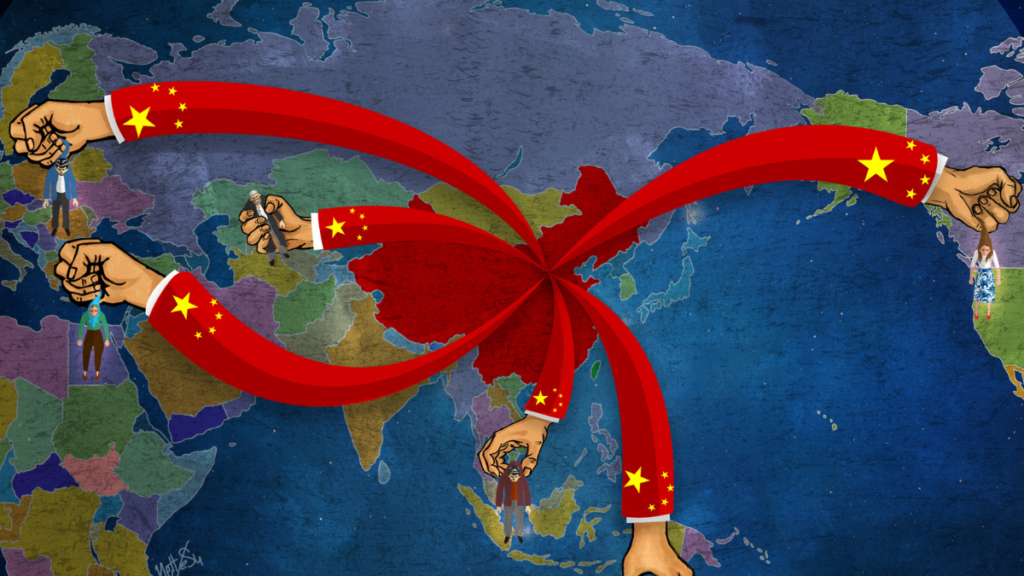China Perpetrating Transnational Repression of Uyghurs on Massive Scale, New Joint Report Reveals

June 24, 2021, 12:00 a.m. EDT
For Immediate Release
UHRP: Omer Kanat +1 (202) 790-1795, Peter Irwin +1 (646) 906-7722
Oxus Society for Central Asian Affairs: Bradley Jardine, +1 (202) 617-1807, bradleyjardine@oxussociety.org
The Uyghur Human Rights Project (UHRP) and the Oxus Society for Central Asian Affairs have released a new report revealing the scale of China’s transnational repression of Uyghurs from 1997 to the present. The report, No Space Left to Run: China’s Transnational Repression of Uyghurs, draws from cases compiled in the Oxus Society’s new China’s Transnational Repression of Uyghurs Database. The report demonstrates that the Chinese government is perpetrating transnational repression on a massive scale, making Uyghurs around the world the special targets of state control beyond China’s borders.
“The scale of China’s transnational repression is no secret to Uyghurs abroad, who have been targeted for decades,” said UHRP Executive Director Omer Kanat. “Virtually every Uyghur living outside East Turkistan has experienced some form of repression at the hands of the Chinese government, from phone calls from Chinese police and attempts to block international travel, to even more serious dangers such as detention, arrest, or deportation to China.”
“Although China’s terrorizing of the Uyghur diaspora spans decades, it has escalated dramatically since 2017, as policy in the Uyghur Region grew increasingly repressive,” said Bradley Jardine, Director of Research at the Oxus Society for Central Asian Affairs. “The data show that far from a territorially bounded campaign of state violence, Xinjiang’s technologically advanced surveillance state has become a truly global problem, spilling across international boundaries and undermining human rights wherever it goes.”
The report details the Chinese government’s reach into 28 countries around the world. The dataset examines 1,546 cases of serious human rights violations on foreign soil from 1997 through March 2021, offering critical insight into the scope and evolution of the Chinese government’s longstanding efforts to control and repress Uyghurs across sovereign borders.
The governments most complicit in China’s persecution of Uyghurs are in the Middle East and North Africa, with 647 cases, and South Asia, with 665 cases. The dataset contains 1,151 cases of Uyghurs being detained in their host country, and 395 cases of Uyghurs being deported, extradited, or rendered back to China.
Unreported cases, and instances of less acute human rights violations, would undoubtedly raise these figures substantially. The Oxus Society database represents just the tip of the iceberg, relying exclusively on publicly reported and validated instances of repression.
“This pervasive danger for Uyghurs shows why it is urgent that the U.S. Congress pass the Uyghur Human Rights Protection Act, and that other governments act decisively to provide safe resettlement for Uyghur refugees at risk,” added Kanat.
China’s transnational repression of the Uyghurs accelerated dramatically with the massive expansion of its system of mass surveillance in East Turkistan, which began in 2016, showing an important correlation between repression at home and abroad. In 1997–2007 at least 89 Uyghurs from 9 countries, primarily in South and Central Asia, were detained or deported to China. In 2008–2013, at least 130 Uyghurs from 15 countries experienced serious abuses. Most recently, from 2014 through March 2021, a total of 1,327 individuals were detained or rendered from 20 countries.
Host countries to Uyghurs should take steps to combat China’s transnational repression and protect Uyghurs and members of other vulnerable groups from East Turkistan by increasing refugee and emigration quotas, providing special status to Uyghurs, and refusing to extradite Uyghurs in violation of international human rights treaties and norms.
International organizations and host countries must cease their complicity in acts of transnational repression, including by restricting networks of enablers and restricting the export of surveillance technologies that are used in tracking and controlling Uyghurs and other vulnerable communities.
For previous UHRP reporting on how the Chinese government uses intimidation, detention, and the threat of deportation to control Uyghurs globally, see:
‘The Government Never Oppresses Us’: China’s proof-of-life videos as intimidation and a violation of Uyghur family unity, February 2, 2021
Weaponized Passports: The Crisis of Uyghur Statelessness, April 1, 2020
Repression Across Borders: The CCP’s Illegal Harassment and Coercion of Uyghur Americans, August 28, 2019
‘Another Form of Control’: Complications in obtaining documents from China impacts immigration processes and livelihoods for Uyghurs abroad, August 10, 2018
The Fifth Poison: The Harassment of Uyghurs Overseas, November 28, 2017
They Can’t Send Me Back: Uyghur Asylum Seekers in Europe, September 20, 2011
